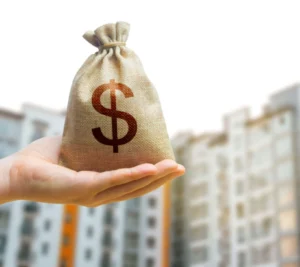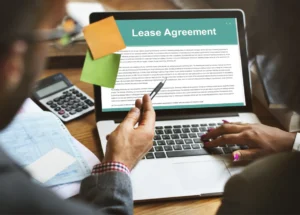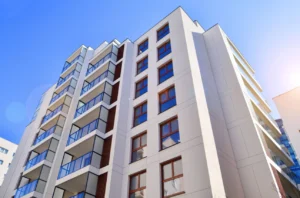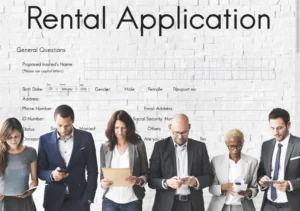Home·Property Management·How to Manage Tenant Lease Renewals Effectively
Tenant Lease Renewals in Multifamily

How to Manage Tenant Lease Renewals Effectively
Have you ever wondered what keeps tenants renewing their leases year after year?
Managing tenant lease renewals effectively is vital for multifamily property success. It reduces turnover, minimizes vacancies, and ensures steady cash flow.
From offering flexible lease terms to creating a sense of community, retaining tenants requires a thoughtful approach. By addressing their needs and enhancing their living experience, you can build lasting relationships that benefit everyone involved.
Discover how innovative strategies and proactive measures can make lease renewals seamless and profitable.
Key Takeaways
-
Quick maintenance responses and clean properties boost tenant satisfaction
-
Renewal incentives can encourage tenants to stay longer
-
Regular communication and data tracking help improve retention strategies
Understanding Tenant Lease Renewals in Multifamily Properties
Tenant lease renewals in multifamily properties are a key part of keeping your units filled and cash flowing. You’ll want to start planning for renewals well before leases end.
Engage renters well in advance of the lease end date to enhance tenant retention.
Keep a close eye on your turnover and vacancy rates. High turnover can hurt your bottom line. Aim to keep good tenants in place when possible. Start talking to tenants about renewal 60-90 days before their current lease expires. This gives you time to negotiate or find new renters if needed.
Consider offering incentives for early renewals. A small rent discount or upgrade could convince tenants to stay put.
Review market rents before sending renewal offers. You want competitive rates, but don’t price out good tenants. Sending a lease renewal notice is crucial when tenants agree to renew their lease, ensuring clarity and compliance with legal guidelines.
Make the renewal process easy. Offer online options and clear instructions. Remove friction points that could frustrate tenants.
Address maintenance issues promptly. Happy tenants are more likely to renew. Quick fixes show you value their comfort.
Personalize your approach. A handwritten note or small gift can make tenants feel appreciated. Track which renewal strategies work best. Use data to refine your process over time. What convinces one tenant may not work for another.
Be flexible with lease terms when possible. Some tenants may prefer shorter leases. Others might stay longer for a small discount.
What is a Lease Renewal?
A lease renewal is the process where a tenant agrees to extend their current lease agreement for an additional period, typically under the same terms and conditions as the original lease.
This process usually takes place as the current lease nears its expiration date, allowing the tenant to continue occupying the rental property without interruption. Lease renewals are advantageous for both tenants and property owners.
For tenants, it provides a sense of stability and security, knowing they can remain in their home. For property owners, it ensures a steady income stream and reduces the costs and efforts associated with finding new tenants. By facilitating a smooth lease renewal process, property owners can maintain high occupancy rates and foster long-term tenant relationships.
Need a Lease Agreement?
Access 150+ state-specific legal landlord forms, including a lease.
Strategies for Improving Tenant Retention Rates
Keeping tenants happy and renewing their leases is key to a successful multifamily property. You can boost retention through community building, flexible leasing, and smart incentives.
Fostering a Sense of Community
Building a strong community is crucial for tenant retention. Host regular events like movie nights, holiday parties, or fitness classes. These activities help residents connect and feel at home.
Create shared spaces that encourage interaction. Think cozy lounges, rooftop gardens, or game rooms. These spots give tenants places to hang out and meet their neighbors.
Keep communication open. Use a mix of emails, social media, and in-person chats to stay in touch. Ask for feedback and act on it quickly, which shows you value their input and care about their experience.
Offering Flexible Lease Terms
Flexibility in lease term can be a game-changer for keeping tenants. Offer various lease lengths, from month-to-month to multi-year options, catering to different lifestyles and needs.
Consider allowing lease transfers or sublets. This can help tenants who need to move unexpectedly but want to avoid breaking their lease.
Implement a “good tenant” program. Reward reliable renters with perks like priority maintenance or first dibs on unit upgrades. This encourages long-term stays and builds loyalty.
Implementing Renewal Incentives
Smart incentives can make renewing a no-brainer for tenants. Offer a small discount on the monthly rent or a free month for signing a longer lease. This can save you money in the long run by reducing turnover costs.
Upgrade apartments for renewing tenants. New appliances, fresh paint, or smart home features can make staying put more appealing than moving.
Create a loyalty program that gives points for on-time payments and lease renewals. These points could be used for rent credits, local business discounts, or property amenities. It’s a win-win that boosts retention and supports the community.
Enhancing Tenant Satisfaction and Experience
Tenant satisfaction is key to successful lease renewals. Happy residents are more likely to stay put. Let’s explore some effective strategies to boost their experience.
Delivering Exceptional Property Management
Property management is about people, not just buildings. You need to build strong relationships with your tenants. Train your staff to be friendly and responsive. Quick follow-ups on issues show you care.
Set clear expectations from day one. A thorough move-in process helps avoid future misunderstandings. Regular check-ins can catch small problems before they grow.
Communication is crucial for tenant satisfaction. Use multiple channels like email, text, and apps. Make it easy for residents to reach you. Consider hosting community events to foster a sense of belonging.
Maintaining High-Quality Amenities
Great amenities can set your property apart. Think beyond the basics. A well-equipped gym or coworking space can be a big draw.
Keep everything in top shape. Regular upgrades show you’re invested in the property. Regular property improvements show you’re invested in the property and can significantly enhance tenant satisfaction. Consider adding trendy features like smart home technology or package lockers.
Don’t forget outdoor spaces. A nice courtyard or rooftop deck can be a huge selling point.
Ask your tenants what amenities they’d like to see. Their input can guide your investments.
Streamlining Maintenance and Support
Fast, efficient maintenance is a must. Set up a system for tracking and prioritizing requests. Aim to resolve issues within 24-48 hours whenever possible.
Preventive maintenance can save you headaches down the road. Regular inspections help catch problems early. Consider offering an online portal for maintenance requests. It’s convenient for tenants and helps you stay organized.
Train your maintenance staff well. They’re often the face of your property. Friendly, skilled technicians can boost tenant satisfaction. Always follow up after repairs to ensure the job was done right.
Optimizing Lease Terms
Optimizing lease terms is essential for property managers aiming to maximize rental income and minimize vacancies. By understanding local market trends and tenant needs, property managers can tailor lease terms to attract and retain desirable tenants.
Here are some effective strategies for optimizing lease terms:
-
Flexible Lease Terms: Offering flexible lease terms, such as shorter or longer lease periods, can appeal to a broader range of tenants. This flexibility increases the likelihood of securing a lease renewal, as tenants can choose terms that best fit their lifestyle and future plans.
-
Market-Based Rent: Setting rent prices based on current market rates helps property managers stay competitive. Tenants are often willing to pay a premium for a desirable rental property that offers good value for money, making market-based rent a crucial factor in attracting and retaining tenants.
-
Lease Expiration Dates: Strategically planning lease expiration dates can help property managers avoid vacancies during slow rental periods and capitalize on peak seasons. By aligning lease end dates with high-demand times, property managers can reduce the risk of prolonged vacancies.
-
Renewal Incentives: Offering incentives, such as rent discounts or property upgrades, can encourage tenants to renew their leases. These incentives not only make the renewal process more attractive but also demonstrate the property owner’s commitment to tenant satisfaction.
-
Clear Lease Agreement: Ensuring that the lease agreement is clear and concise helps prevent disputes and misunderstandings. A well-drafted lease agreement makes the lease renewal process smoother and more efficient, fostering a positive relationship between tenants and property managers.
By optimizing lease terms, property managers can create a win-win situation for both tenants and property owners. This approach leads to increased tenant satisfaction, reduced vacancies, and maximized rental income, ultimately contributing to the long-term success of the rental property.
Analyzing Multifamily Metrics and Lease Renewal Outcomes
Analyzing multifamily metrics and lease renewal outcomes is crucial for property success. You need to track key data points to make informed decisions about your properties.
Strategically planning when leases expire can help you align with peak moving seasons and minimize vacancy periods.
Occupancy and renewal rates are top metrics to watch. These numbers show how well you’re keeping tenants happy and units filled. Keep an eye on trends over time.
Resident satisfaction directly impacts renewals. Happy tenants are more likely to stay put. Survey your residents regularly to catch issues early.
Your leasing team plays a big role in retention. Train them to build strong relationships with tenants. This personal touch can make a huge difference at renewal time. High tenant turnover hurts your bottom line. Turnover costs add up fast with repairs, cleaning, and lost rent. Focus on keeping good tenants to save money long-term.
Security deposits can affect renewals too. Be fair and transparent about deposit policies. Return deposits promptly to build trust.
Don’t forget the power of community. Host events that bring residents together. These connections can make tenants feel at home and want to renew.
Analyzing lease renewal timing is another key factor. Look at when tenants typically renew. This helps you plan marketing and outreach efforts.
Frequently Asked Questions Tenant Lease Renewals in Multifamily
What are the legal requirements for renewing a lease for a multifamily property?
Legal requirements for multifamily lease renewals vary by location. You must follow local landlord-tenant laws, fair housing regulations, and rent control ordinances if applicable. Provide written notice of renewal terms within the timeframe specified by law. New tenant protections may apply if you have Fannie Mae or Freddie Mac financing.
What are the best practices for handling lease renewal negotiations with tenants?
Best practices for lease renewal negotiations include starting early, being transparent about any rent increases, and listening to tenant concerns. Offer incentives for early renewal, such as small upgrades or a one-time discount. Be flexible and willing to compromise to keep good tenants.
How can landlords increase the likelihood of lease renewals in multifamily properties?
To boost lease renewals, maintain open communication with tenants year-round. Address maintenance issues promptly and create a sense of community through events or amenities. Consider offering flexible lease options or loyalty programs for long-term residents.
What are the implications of not renewing a lease for a tenant in a multifamily building?
Not renewing a lease can lead to vacancy costs, including lost rent and turnover expenses. You may face legal challenges if the non-renewal violates fair housing laws. It can also harm your property’s reputation if tenants feel unfairly treated.
How often should the terms of a multifamily lease be revisited or renegotiated upon renewal?
You should revisit lease terms annually, but major changes are typically made every 2-3 years. Stay current with market rates and local regulations. Consider longer-term leases with built-in rent increases for stable tenants to reduce frequent negotiations.
What strategies can landlords use to communicate a non-renewal decision to a tenant?
When communicating non-renewal, be professional and give proper notice as required by law. Explain the decision clearly and offer assistance in finding new housing if possible. Provide information on move-out procedures and security deposit return to maintain a positive relationship.
Tenant Lease Renewals Multifamily – Conclusion
Managing tenant lease renewals isn’t just about maintaining occupancy; it’s about fostering loyalty and enhancing tenant satisfaction.
By being proactive with communication, offering flexible terms, and creating a welcoming community, you can significantly improve retention rates. Incentives, timely maintenance, and quality amenities also play a critical role in encouraging tenants to stay.
Source: Willowdale Equity
Get AAOA's Newsletter
Property Management News Categories
- Affordable Housing
- Collections
- COVID-19
- Eviction
- Fair Housing
- Financing
- Going Green
- Government
- Investing
- Landlord Forms
- Landlord Quick Tips
- Latest News
- Leasing
- Legal Brief
- Legal News
- Maintenance
- Make Extra Money
- Marketing Vacant Units
- Property Management
- Real Estate Investing
- Real Estate Trends
- Remodel and Repair
- Rent Magazine
- Security Deposit Alternatives
- Social Media
- Tax Tips
- Technology
- Tenant Screening
- Uncategorized













 Accessibility
Accessibility